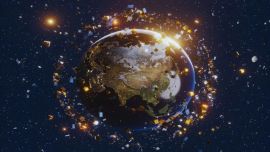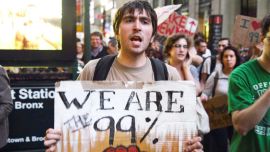Indian Prime Minister Narendra Modi inaugurated the sixth edition of the Raisina Dialogue on April 13, 2021. The following speech, shared with the Times via the Indian Embassy in Argentina, was delivered at its inauguration:
Excellencies! Friends, Namaskar!
This edition of Raisina dialogue takes place at a watershed moment in human history. A global pandemic has been ravaging the world for over a year. The last such global pandemic was a century ago. Although humanity has faced many infectious diseases since then, the world today is under-prepared to handle the Covid-19 pandemic.
Our scientists, researchers and industry have answered some questions.
What is the virus?
How does it spread?
How can we slow it down?
How do we make a vaccine?
How do we administer vaccine at a scale and with speed?
To these and many other such questions many solutions have emerged. And no doubt many more are yet to come. But as global thinkers and leaders we must ask ourselves some more questions.
For over a year now, the best minds of our societies have been engaged in battling this pandemic. All the governments of the world at all levels are trying to contain and control this pandemic. Why did it come to this? Is it perhaps because in the race of economic development the concern for welfare of humanity has been left behind.
Is it perhaps because in the age of competition, the spirit of cooperation has been forgotten. The answer to such questions can be found in our recent past. Friends the horrors of the First and Second World War compelled the emergence of a new world order. After the end of the Second World War, over the next few decades many structures and institutions were created but under the shadow of the two wars they were aimed at answering only one question, how to prevent the Third World War?
Today, I submit to you that this was the wrong question, as a result all the steps taken were like treating a patient symptoms without addressing the underlying causes. Or to put it differently, all the steps taken were to prevent the last war not the next one. In fact while humanity has not faced the Third World War, the threat of violence has not reduced in people's lives. With a number of proxy wars and unending terror attacks, the prospect of violence is ever present.
So, what would have been the right question? They could have included:
Why do we have famines and hunger?
Why do we have poverty?
Or most fundamentally
Why can't we cooperate to address problems that threaten the entire Humanity?
I'm sure that if our thinking has been along such lines, very different solutions would have emerged.
Friends!
It is not too late even now. The mistakes and misdeeds of the past seven decades need not constrain our thinking for the future. The Covid-19 pandemic has presented us an opportunity to reshape the world order, to reorient our thinking. We must create systems that addresses the problems of today and challenges of tomorrow. And we must think of the entire humanity and not merely of those who are on our side of the borders. Humanity as a whole must be at the centre of our thinking and action.
Friends!
During this pandemic, in our own humble way, within our own limited resources, we in India have tried to walk the talk. We have tried to protect our own 1.3 billion citizens from the pandemic. At the same time we have also tried to support the pandemic response efforts of others. In our neighbourhood, we have encouraged our coordinated regional response to the crisis. Last year we shared medicines and protective equipment with over a hundred and fifty countries. We understand fully, that mankind will not defeat the pandemic unless all of us, everywhere, regardless of the colour of our passports, come out of it. That is why, this year despite many constraints, we have supplied vaccine to over 80 countries. We know that the supplies have been modest. We know that the demands are huge. We know that it will be a long time before the entire humanity can be vaccinated. At the same time we also know that hope matters. It matters as much to the citizens of the richest countries as it does to the less fortunate. And so we will continue to share our experiences, our expertise and also our resources with the entire Humanity in the fight against the pandemic.
Friends!
As we gather virtually at the Raisina dialogue this year, I call upon you to emerge as a powerful voice for a human centric approach, As how said elsewhere while we may be used to having Plan A and plan B, there is no Planet B, only planet Earth. And so we must remember that we hold this planet merely as trustees for our future Generations.
I will leave you with that thought and wish you very productive discussions over the next few days. Before I conclude, I wish to thank all the dignitaries who are adding their voices to these deliberations. My special thanks to Their Excellency’s the President of Rwanda and the Prime Minister of Denmark for their valuable presence in this session of the dialogue. I also wish to thank my friend the Prime Minister of Australia and the President of the European Council who will be joining the dialogue later.
Last but not the least my immense gratitude and heartiest congratulations to all the organisations. They have done fantastic work in putting together this year's Raisina dialogue despite all kinds of challenges.
Thank you. Thank you very much.
* The Raisina Dialogue is a multilateral conference held annually in New Delhi, India.
























Comments